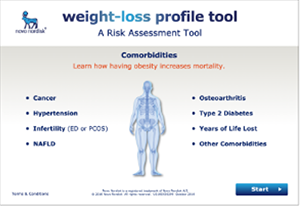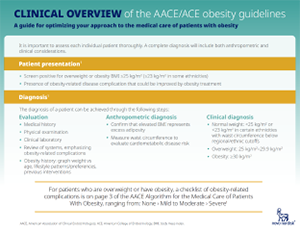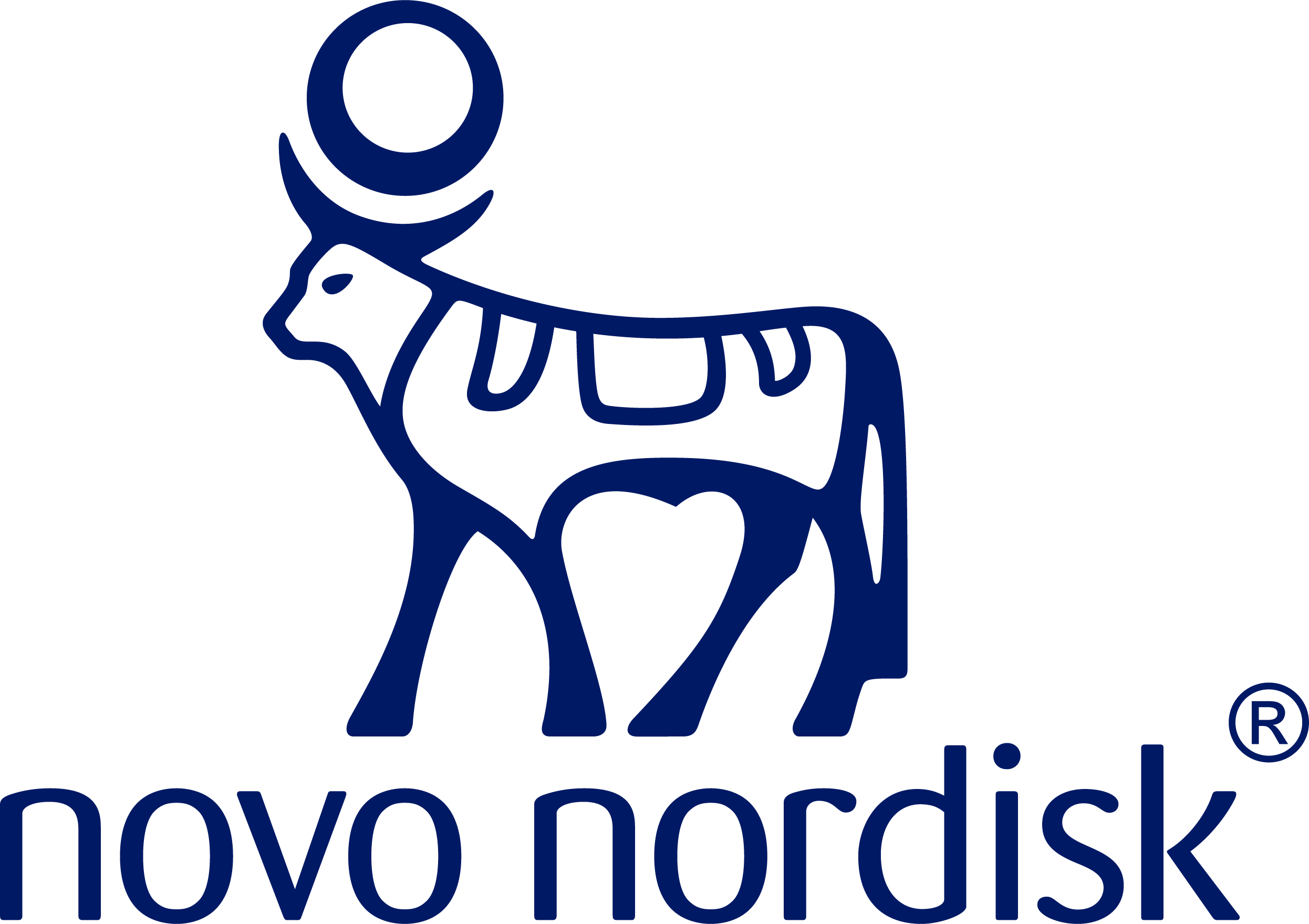Metabolic adaptation drives weight regain1,2
Weight loss due to calorie restriction may cause the body to react by slowing the metabolism and altering appetite-regulating hormones in a process called metabolic adaptation, making long-term weight management difficult.1,2
The value of weight loss
Obesity is associated with multiple comorbidities, some of which can be improved through weight loss3,4
Obesity treatment modules
This interactive, expert-led series provides practical tools for clinicians dedicated to delivering excellent obesity care

Reframing obesity treatment
Obesity is often managed differently than other chronic diseases. In this video, Dr. Holly Lofton addresses the importance of proper diagnosis and what treatment can mean for patients.

Risk assessment tool
This tool can help you assess the risks weight-related comorbidities pose to your patients and plan a course of action to help alleviate these conditions through long-term weight management.

Obesity treatment case studies
Review case studies about patients with obesity that may be similar to patients you see in your own practice.

AACE/ACE guidelines
Access clinical practice guidelines for the management of obesity.
References
1. Sumithran P, Prendergast LA, Delbridge E, et al. Long-term persistence of hormonal adaptations to weight loss. N Engl J Med. 2011;365(17):1597-1604.
2. Lam YY, Ravussin E. Analysis of energy metabolism in humans: a review of methodologies. Mol Metab. 2016;5(11):1057-1071.
3. Bays HE, Seger JC, Primack C, et al. Obesity algorithm 2016-2017. Presented by the Obesity Medicine Association. Accessed June 9, 2018. https://obesitymedicine.org/obesity-algorithm
4. Ryan DH, Yockey SR. Weight loss and improvement in comorbidity: differences at 5%, 10%, 15%, and over. Curr Obes Rep. 2017;6(2):187-194.

